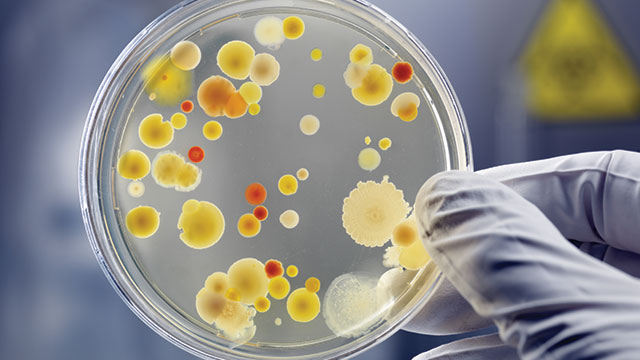Clinical Microbiology is one of the most evolving branches of laboratory medicine. The
clinical microbiology laboratory is central to the diagnosis and management of infectious
diseases. Accurate and timely infectious disease diagnosis is crucial in appropriate
therapeutic management of patients. In the current era of multidrug resistance, clinical
microbiology laboratories are crusaders in antibiotic stewardship by providing antimicrobial
resistance data to physicians and hospitals.

Clinical Microbiology testing encompasses a broad range of infectious disease testing in
major broad areas such as Bacteriology, Mycobacteriology, Mycology, Parasitology,
Infectious Immunology (Serology) and Molecular Microbiology.
A range of techniques are employed in the laboratory to process specimens and ensure accurate and timely results. Use of state of the art techniques and technologies has a positive impact on the workflow and quality of results. Special stains such as Modified Kinyoun, Trichrome, LPCB, AuramineRhodamine, etc are used for morphological identification of bacteria, parasites and a variety of fungi.A variety of enriched, differential, chromogenic and selective media are used at various incubation temperatures and atmospheric conditions (aerobic, anaerobic, capnophilic and microaerophilic) to ensure growth of common as well as fastidious pathogens. Microbroth dilution techniques, KirbyBauer disc diffusion techniques, biochemical analysis are employed effectively to tackle with the diverse range ofpathogens encountered.


Gujarat Pathology Laboratory & Diagnostic Center is a advance healthcare Centre in Ahmedabad that offers various services like Hematology, Clinical Biochemistry, Clinical Pathology, Immunology, Microbiology, Molecular and Histopathology with the expert pathologist, Microbiologist, Histopathologist and transfusion medicine expert We are associated with more than 200 Consultants and more than 20 public & private hospitals. We are serving average 3 lakh patients per year with having six branch and more than 20 collection centres in Ahmedabad & peripheries.
©Copyright 2022. All Rights Reserved. Linkgenic Digitech Pvt Ltd